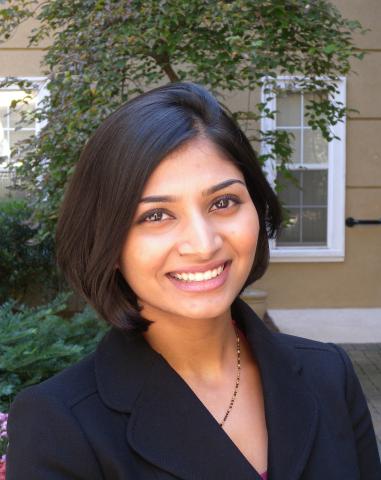Member for
3 years 11 monthsThe Garcia Lab research activities focus on biomolecular, cellular, and tissue engineering strategies to direct cell function for biomaterial and regenerative medicine applications. These integrated strategies provide fundamental insights into mechanisms regulating cell-material interactions and constitute novel approaches to the engineering of bioactive materials for enhanced tissue repair. I am interested in looking at how mechanical and biological cues promote cell proliferation, spreading and differentiation. I hope the outcome of my research will assist work in regenerating skeletal muscle for patients suffering from volumetric muscle loss.
Apoorva Salimath is a Bioengineering Graduate Research Assistant working with Dr. Andres Garcia at the Georgia Institute of Technology. Here, Apoorva focuses on using polymer hydrogels to regenerate skeletal muscle tissue. Previous work includes using the same hydrogel system to co-deliver dual growth factors to mediate cardiac repair and improve function. She was awarded a STAR Award at Society for Biomaterials, 2012 for this project. Apoorva holds a Bachelor’s degree in Biomedical Engineering from Purdue University, where she was awarded the Martin C. Jischke Outstanding International Student of the Year Award for contributions to the international community at Purdue, upon Graduation in May 2010. As an active participant in the Indian Community at tech, Apoorva loves to be involved with people, whether it is working at the bench or performing on stage together.
My project is focused on generating a contractile muscle strip from skeletal muscle myoblasts in a hydrogel scaffold of poly(ethylene glycol)-[PEG] with maleimide (MAL) cross-linking chemistry. We hypothesize that modulating controllable components of the hydrogel will enable us to create a critical microenvironment for attachment, proliferation, differentiation and stable formation of multinucleated myotubes for functional skeletal muscle tissue constructs, as a regenerative solution to volumetric muscle loss as well as a force actuator for cellular machines. Preliminary data with these gel systems demonstrate that 3D gels of 5% (w/v) 4-arm PEG-maleimide (PEG-MAL) macromers functionalized with 2mM RGDS adhesion peptide, and cross-linked by the addition of cysteine-flanked MMP-degradable peptide sequences (VPM) were found to provide the most suitable matrix for C2C12 mouse myoblast proliferation and differentiation.

